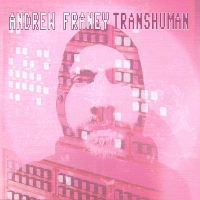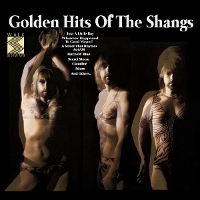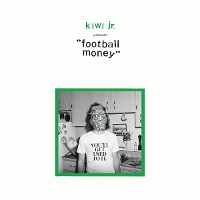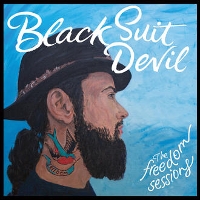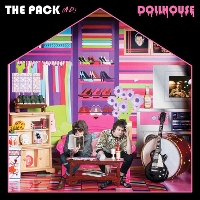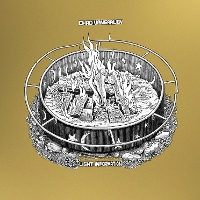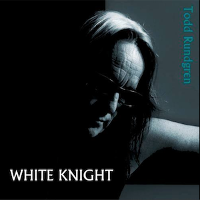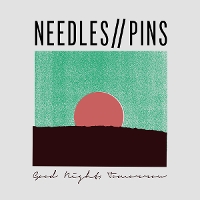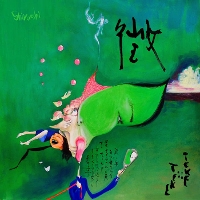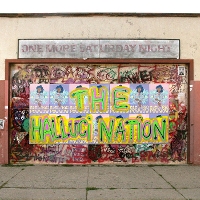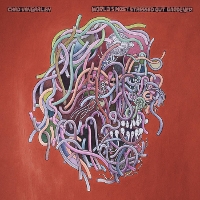MGMT: The bigtime is calling

Success was already in the cards for MGMT when they sat down with our Scott Wood.
By now, just about everyone knows MGMT, but there was a time when they were merely a buzz band, flying just under everyone’s radar. They were type of band only the coolest of all your kewl friends knew about. As hard as it may be to believe, MGMT were opening for Yeasayer—ironically another indie band that has now blown up huge—at the tiny club called the Bourbon.
Right after that, MGMT took the world by storm with their first record, Oracular Spectacular, on the strength of brilliant singles like “Kids” and “Time To Pretend.” Those songs could almost be called anthems for a certain generation.
Last year, the band returned with a second album, Congratulations, that was almost universally disliked. But this didn’t stop the band from headlining bigger shows and topping the charts.
Here is my chat with MGMT before they were super big stars. We did the interview on an autumn rainy day on the streets of Gastown as tons of people passed by. That night, they were opening for Yeasayer—another NY band who no one had heard of either, yet—and we did the interview right outside of Shine Nightclub in the middle of construction and traffic.
Scott Wood: MGMT: I’ve seen it pronounced “The Management,” but David Letterman pronounced it “M-G-M-T”—so which is it?
Ben Goldwasser: It’s M-G-M-T. We changed it from “Management” because—
Andrew VanWyngarden: “The Management.” We used to call it “The Management.”
Ben Goldwasser: “The Management”—because we had some legal issues. There was another band using the name “The Management,” but then we ended up liking MGMT better because it sounds more mysterious.
 We really wanna make music that we feel is good music on a major label. A lot of music that we listen to is like old music from the 60s or the 70s. It was put out on a major labels and it was created [there]. It seems like major labels are not really finding new talent that is original.
We really wanna make music that we feel is good music on a major label. A lot of music that we listen to is like old music from the 60s or the 70s. It was put out on a major labels and it was created [there]. It seems like major labels are not really finding new talent that is original.
Andrew VanWyngarden: Mysterious, yeah.
Scott Wood: Ok, cool. It’s your birthday today. Happy Birthday!
Andrew VanWyngarden: Thank you.
Scott Wood: What did you get your bandmate for his birthday?
Ben Goldwasser: Uhm...
Andrew VanWyngarden: Nothing!
Ben Goldwasser: Nothing yet. We had kind of a ridiculous night last night in Seattle—
Andrew VanWyngarden: I haven’t had a single birthday present bestowed upon me today.
Scott Wood: That sucks. You gotta work on that!
Andrew VanWyngarden: Yeah.
Ben Goldwasser: Yep.
Scott Wood: You guys are on Columbia, a so-called big label. And I read a critic who said, “I have faith in the big money labels again” just because they signed you guys. Others have said that you guys are thumbing your noses at the indie snobs by signing to a big label. What is your reaction to all that?
Andrew VanWyngarden: I think they’re both pretty accurate. What was the first quote?
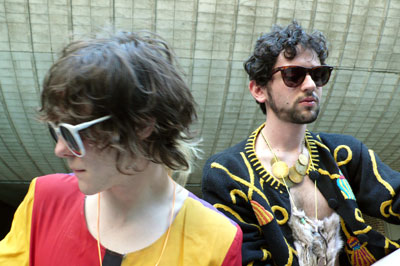
Scott Wood: That one critic’s faith in the big labels has been restored because they signed a band like MGMT.
Andrew VanWyngarden: Oh yeah. Well, I don’t know about “big money.” Well whatever. Indie labels can be “big money” too.
Ben Goldwasser: We really wanna make music that we feel is good music on a major label. A lot of music that we listen to is like old music from the 60s or the 70s. It was put out on a major labels and it was created [there]. It seems like major labels are not really finding new talent that is original. We don’t want bands to be afraid to sign to major labels, but—
Andrew VanWyngarden: But we also did it so we can effect people on a larger scale—with our sinister plans.
Scott Wood: Ok, we’ll get to your “sinister plans” in a moment. But first, what is a major advantage and disadvantage of having a big label push behind you?
Ben Goldwasser: Uhm... It’s really cool. The level of exposure we’ve been getting is definitely not something that would have happened before we signed to a major label. But I mean, in a way, that’s also kind of scary because we don’t want to feel overhyped or people are into—
Andrew VanWyngarden: I think a lot of it is natural or I like to think a lot of it is. You know, people actually liked the album. It’s not just a big label telling people to like the album, you know?
Ben Goldwasser: Yeah... I don’t know if it’s so much that they’re telling people to like it, but just getting our name out there. So people are hearing about us from somewhere, which prior to us getting the label deal, nobody was hearing about us from anywhere so—
 When we recorded our album [the megahit Oracular Spectacular], originally they were gonna send us back in to record more songs. I guess because some of the music wasn't asaccessible as what would usually put out. I think we had to try really hard to convince them to have faith in what we we're doing. Just because something wasn't immediately accessible...
When we recorded our album [the megahit Oracular Spectacular], originally they were gonna send us back in to record more songs. I guess because some of the music wasn't asaccessible as what would usually put out. I think we had to try really hard to convince them to have faith in what we we're doing. Just because something wasn't immediately accessible...
Andrew VanWyngarden: That’s one advantage: having this big machine that can work for you. But you have to kind of guide them, very carefully every step of the way. Because the things they would do traditionally for bands, they’ve done for years and years, aren’t necessarily the things we want to be done with our music.
Scott Wood: If you think of a big label success, a band like Nickelback comes to mind. And you guys are definitely not them. Can you think of an example where the label has wanted one thing and you’ve had to say, “No, we need to do it this way”?
Ben Goldwasser: When we recorded our album, originally they were gonna send us back in to record more songs. I guess because some of the music wasn’t as accessible as what would usually put out. I think we had to try really hard to convince them to have faith in what we we’re doing. Just because something wasn’t immediately accessible... It seems like the goal with a lot of major label bands is immediate gratification. You hear it once and you get it. We kind of feel that a lot of our favourite things are things you kind of pick up on the third or fourth listen of something.
Andrew VanWyngarden: But, at the same time, the reason we ended up signing was that they assured from the beginning that we would be able to do what we wanted musically and creatively. We kind of came in right when Columbia was going under and everything was shifting. I guess another thing is most bands, when they record, they’ll go into the studio with maybe 15 or 16 songs, and record them all and then pick the best ones. We kind of went in with 10 songs—9 songs and wrote one in the studio. And so we didn’t have b-sides, or what they call b-sides. And then we went back last fall to record b-sides with Dave Fridmann again, but ended up just recording a 14 minute song, which they still call a b-side, but that’s good that we can do that. We’re just trying to take them in different directions.
Scott Wood: I was reading that when you were ready to press the first record, uber-producer and industry legend Rick Rubin wanted to meet with you to discuss changing your sound. What type of conversation did you guys have?
Ben Goldwasser: It wasn’t so much changing the sound. Like, he really liked the way it sounded. He thought we were going in a good direction with it. I think his feeling originally was that we could record more songs that could fit on the album. And we were really happy with our album at the time. We didn’t feel like we half-assed it at all. We were very sincere about all of the songs on it. When we heard that he wanted us to go back into the studio, we said that we wanted to meet up with him, and talk to him. We pretty much didn’t think that was going to happen at all and then he flew us out to LA for us to meet him at his house.
Andrew laughs and interrupts.
Ben Goldwasser: He’s a really nice guy.
Scott Wood: Ok, hold up. You’ve got to paint a picture of this. This guy is a music industry legend sitting down to talk with you. Bringing you to his house. It must be palatial. What is all that like?
Andrew VanWyngarden: It’s like Ben said. It’s Rick Rubin but he wants us to change our album. He’s never met us and he doesn’t really know what we are all about. So let’s meet Rick Rubin. And then a week and a half later we’re in Malibu and driving up to this really nice house. We sat in his backyard. A really nicely manicured lawn. There were bunnies and there was a sunset, looking out over Zuma Beach or whatever beach is right there. He came out. He was barefoot and sat in a chair and it was just a really calm conversation.
Ben Goldwasser: And he never—
Andrew VanWyngarden: We talked for like 45 minutes and he never mentioned anything about changing the record or anything. He was just really positive about our music. So we had to bring it up, “So what do you want us to do to our album?” And he just said that he didn’t want to change it anymore. All he wanted to change were the track listing.
 You know, if you get picked up by a hitchhiker things are already pretty weird, and you've gotta be weird back to them and give them, like, the piece of an animal.
You know, if you get picked up by a hitchhiker things are already pretty weird, and you've gotta be weird back to them and give them, like, the piece of an animal.
Scott Wood: Really?
Andrew VanWyngarden: Yeah.
Scott Wood: Wow. Crazy.
Both Ben and Andrew burst out laughing.
Scott Wood: That must have been a very surreal experience.
Andrew VanWyngarden: Yes!
Scott Wood: Ok, before you signed to Columbia, you guys made an EP at the end of university—where you met—and then you took a break from music for six months where you sort of split up. I was wondering if you could talk a little bit about that time, because it sounded like MGMT was a university experiment that you were ready to leave behind—is that the case?
Ben Goldwasser: Yeah.
Andrew VanWyngarden: Pretty much.
Ben Goldwasser: We really enjoyed being in a band, but we didn’t really see where it fit in at all, what place it would have outside of us just having fun at school and we hadn’t considered the possibility of shopping around to other labels or anything like that. And we moved to separate locations, pretty much.
Scott Wood: So in the meantime, what did both of you do?
Ben Goldwasser: Andrew was living in Brooklyn just doing PA jobs—
Andrew VanWyngarden: I was just doing random jobs. Still making music though.
Ben Goldwasser: And I moved to upstate New York for a while. I was doing some construction work. I lived with roommates. We didn’t have electricity in the house I was living in. We didn’t have cell phone reception because I was living in the middle of nowhere.
Scott Wood: Your song “Weekend Wars” reminded me of those time where you fight for turf as little kids. Can you tell me something from when you were young and doing stuff like that?
Andrew VanWyngarden: Wait—“lawns” you said?
Scott Wood: Well, yeah... When I was a kid out in the suburbs, the neighbourhood kids divided up the grass areas into little territories and we would defend them from “attacks”—like Cowboys and Indians.
Andrew VanWyngarden: Well, yeah. I wrote the lyrics and it was a little bit darker and nastier than that. They’re kind of about fighting fundamentalist people in a post-apocalyptic beach world and like killing animals for lunch. But yeah—when I was a kid we had snow fights. I lived in Pittsburgh when I was growing up. But that’s not really what the song is about.
Ben tries to stop a giggle.
Andrew VanWyngarden: What were your childhood fighting experiences?
Scott Wood: Yeah.
Ben Goldwasser: I had a friend who was really into the Civil War, so we used to pretend that we were in the middle of a Civil War battle. And he had like a treehouse...
Scott Wood: Your sound has a nice contrast to it. It sounds like classic rock reinterpreted for today so it has this youthful idealistic sound but I read a quote where you said the lyrics came from “living in a post 9-11, quasi-apocalyptic mindset.” It all comes together nicely in the video for “Time To Pretend” which is a cross between Lord Of The Flies and The Neverending Story, where you guys are riding that giant housecat. Could you guys talk about those two competing themes?
Andrew VanWyngarden: What was the first thing?
Scott Wood: The power of youth and idealism.
Andrew VanWyngarden: And what was the other thing?
Scott Wood: It is from a quote of yours about “living in a post 9-11, quasi-apocalyptic” reality.
Andrew VanWyngarden: Yeah. Post 9-11, but also post graduation.
Scott Wood: Oh, Ok.
Andrew VanWyngarden: Kind of just like confusion.
Scott Wood: Yep.
Andrew VanWyngarden: So maybe those things are linked because you’re learning, you’re kind of thrust into this real life world, and kind of learning how to... It’s all about learning and growing, right after you graduate. Maybe we signed because we wanted to preserve the kind of fake reality kind of thing you know? It’s a little bit of an escapist thing to wanna be a rockstar-musician.
Scott Wood: Absolutely.
Andrew VanWyngarden: Yeah, I dunno. What do you think man?
Ben Goldwasser: I guess... uhm. Yeah... I think you got it.
Andrew laughs.
Scott Wood: Your press materials describe you as “psychic pilgrims.” So if you are psychic pilgrims hitchhiking on a trek through this world and someone picks you up and takes you to the next stop on your voyage. What is the perfect gift to give this person, as “psychic pilgrims?”
Andrew VanWyngarden: Probably Frankincense or some old weird shit like that. Mur? Maybe some weird piece of an animal, like a tiger’s penis or something.
Scott and Ben snicker.
Andrew VanWyngarden: You know, if you get picked up by a hitchhiker things are already pretty weird, and you’ve gotta be weird back to them and give them like the piece of an animal.
Scott Wood: Alright.
Andrew VanWyngarden: What do you think?
Scott Wood: Yeah, what do you think?
Ben says nothing.
Scott Wood: I like that logic, being “weird” back to them.
Ben Goldwasser: Yeah, I’m not gonna.
Scott Wood: Ok last question. You guys used to have a praying mantis as a pet.
Andrew VanWyngarden: Yes.
Scott Wood: And the lyrics of “Time To Pretend” talk about the idealized rock and roll lifestyle. What would be your idea of an overblown rock star exotic pet? Like wow, I’ve got a mansion, a supermodel wife and now I need this crazy, crazy pet.
Andrew VanWyngarden: I think it would be cool to have a salt water swimming pool/aquarium with a coral reef and some cool fish. I guess my favourite fish is currently the squirrel fish.
Scott Wood: And why is that?
Andrew VanWyngarden: Uhm, I just like how big it’s eyes are. They are a really nice shade of red.
Scott Wood: Cool. You?
Ben Goldwasser: I’d like a little house in the country with a big front porch and a dog sleeping on it and a fireplace, you know?
Scott Wood: And where is the exotic pet?
Ben Goldwasser: Where’s my really crazy pet? Inside the dog.
The Interview Show is everywhere.
Follow me on twitter @interview_show
Listen to The Interview Show on SoundCloud soundcloud.com/interviewshow
SoundCloud RSS Feed
www.cjsf.ca (Vancouver, BC, Mondays 4:30-5pm PST and Wednesdays 12:30am PST)
www.ckdu.ca (Halifax, NS, Saturdays 1:30-2:00am AST)
www.radiocfxu.ca (Campus Community Radio, Antigonish, NS, Fridays 11pm-12am AST)
www.cfru.ca (University of Guelph Radio, ON, Tuesdays 3pm EST)
www.umfm.com (Winnipeg’s Hit Free Radio, Fridays 6-6:30pm CST)
www.caperradio.com (Cape Breton University Radio, NS, Wednesdays 3-3:30pm AST)
www.localfm.ca (Campus Radio Saint John Inc., NB, Tuesdays 11:30am and Fridays 3:30pm AST)


